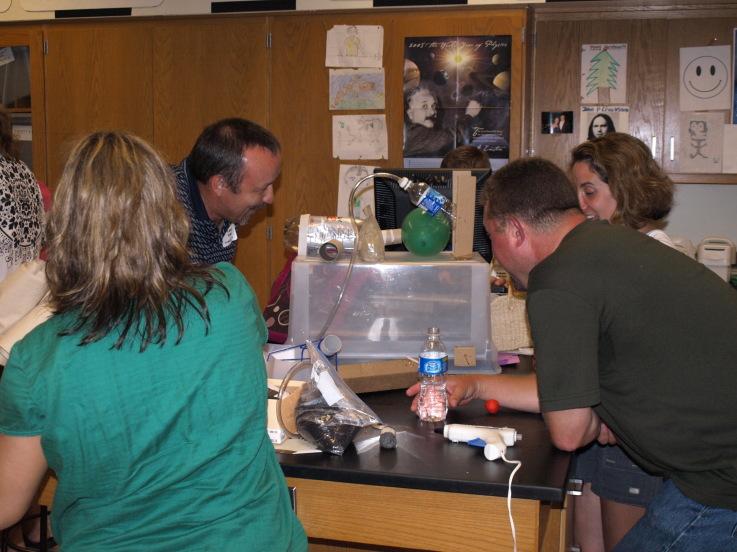Personalized professional development
By Mary Bigelow
Posted on 2011-01-21
 I am part of a team of elementary teachers (pre-K through fifth grade). Where can we find professional development (PD) in Earth sciences?
I am part of a team of elementary teachers (pre-K through fifth grade). Where can we find professional development (PD) in Earth sciences?
—Patricia, Houston, TX
I’m really excited you and your colleagues take an interest in Earth sciences. Students seem to be naturally interested in rocks, stars, weather, volcanoes, fossils, and other topics related to the world around them.
I’m seeing two strands in your question: improving your own content knowledge and finding resources (activities, materials, and so on) for teaching Earth science topics. Start by identifying a few content topics from your curriculum on which to focus your efforts, perhaps the ones in which you feel least confident or for which you need the most resources. If you and your team form a “study group,” you can organize your PD and share the content you’re learning, the resources you find, and the lessons you develop.
You’re fortunate to live in an area with many opportunities.
Check into graduate courses or workshops integrating content knowledge and teaching strategies from higher education institutions. For example, Rice University’s Department of Earth Science has outreach programs for educators. Other science organizations, such as the Houston Museum of Natural Science or Space Center Houston may also have programs that meet your needs.
But you’re not limited by location. Many institutions across the country offer content-focused online courses. For example, the American Museum of Natural History in New York City has a series of online courses for educators.
NSTA also has professional development resources, many available to all teachers. Science Objects are two-hour online interactive inquiry-based content modules that help teachers better understand the science content in several earth science topics (and they’re free):
- Earth, Sun, and Moon
- Earth’s Changing Surface
- Ocean’s Effect on Weather and Climate
- Solar System
- Rocks
- Universe
- Resources and Human Impact
- Plate Tectonics
SciPacks integrate these objects into a more formal “course.” A modest fee includes unlimited expert content help via email and a final assessment. Passing the final assessment produces a certificate from NSTA to document your understanding. There is also a component demonstrating how to connect the content with the classroom.
NSTA also sponsors online courses. Other free resources include podcasts and web seminars. “Attending” one gives you a year’s access to a SciGuide and a certificate of attendance.
If part of your plan includes finding Earth science lesson materials, the Learning Center also includes SciGuides—detailed lesson plans organized by grade level and topic. There is a small fee for these. Remember, NSTA members have access to current and archived articles from NSTA’s journals such as Science & Children and Science Scope.
NSTA’s SciLinks is a treasure chest of online resources. The websites have been vetted by a team of webwatchers—teachers who find and review relevant and appropriate sites for the collection. The sites for teachers include lesson plans and suggestions for the classroom. SciLinks can be searched by grade level and topic. The sites for older students can be useful for teachers who want to learn more about a topic.
Effective PD should be planned and purposeful, rather than a collection of unrelated events. Be sure your efforts align with your school or district’s PD plan. If you have requirements for continuing PD hours, find out how to make your work count, whether it’s a graduate class, a workshop, online activities, a group field trip, or independent study. Document your PD plan with the experiences in terms of the content you learned, the resources you acquired, the time spent, and your reflections on how you will use what you learned to help your students engage in high-quality learning activities. If your team does not have a formal plan, check out the Professional Development Plan and Portfolio tool in the NSTA Learning Center. This tool helps you create a plan and document your accomplishments.
Photo: MLB
Disclaimer: The views expressed in this blog post are those of the author(s) and do not necessarily reflect the official position of the National Science Teaching Association (NSTA).

